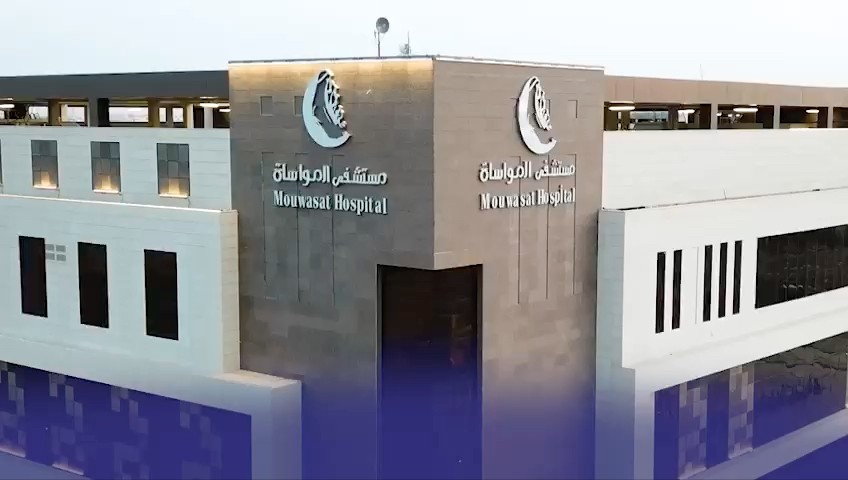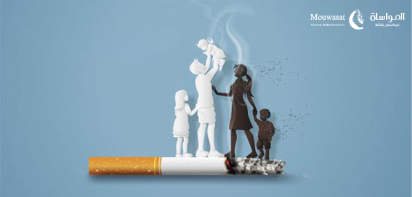Welcome to our interactive Q&A session with the fertility specialists at Mouwasat Hospital. We understand that embarking on the journey of In Vitro Fertilization (IVF) can bring about many questions & uncertainties. Our dedicated team is here to provide you with clear, accurate & compassionate answers to help guide you through the process.
Below, we've compiled some of the most frequently asked questions about IVF. If you have a question that isn't answered here, please don't hesitate to schedule a consultation with one of our specialists.
Q: Who is a good candidate for IVF treatment?
A: Dr. Wadha Mohawash: IVF is often recommended for individuals or couples facing various fertility challenges, including:
- Blocked or damaged fallopian tubes
- Severe endometriosis
- Male factor infertility (low sperm count, motility, or morphology)
- Unexplained infertility
- Ovulatory disorders
- Genetic disorders (with preimplantation genetic testing - PGT)
- Failed previous IUI (Intrauterine Insemination) cycles
A thorough evaluation & discussion with our fertility specialists will help determine if IVF is the most suitable treatment option for your specific situation.
Q: What are the basic steps involved in the IVF process?
A: Dr. Amin Eljurdi: The typical IVF process involves several key stages:
- Ovarian Stimulation: Medications are used to stimulate the ovaries to produce multiple mature eggs.
- Egg Retrieval: A minimally invasive procedure to collect the mature eggs from the ovaries.
- Fertilization: The retrieved eggs are fertilized with sperm in a laboratory setting. This can be done through conventional insemination or Intracytoplasmic Sperm Injection (ICSI).
- Embryo Culture: The fertilized eggs (now embryos) are monitored & allowed to develop in the laboratory for a specific period.
- Embryo Transfer: One or more of the best quality embryos are carefully transferred into the woman's uterus.
- Luteal Phase Support: Medications may be prescribed to support the uterine lining & increase the chances of implantation.
- Pregnancy Test: Approximately two weeks after the embryo transfer, a blood test is performed to determine if pregnancy has occurred.
We will guide you through each of these steps with detailed explanations & personalized care.
Q: How long does one cycle of IVF typically take?
A: Dr. Wadha Mohawash: A complete IVF cycle, from the start of ovarian stimulation to the pregnancy test, typically takes around 4 to 6 weeks. However, this timeline can vary depending on individual responses to medication & specific treatment protocols.
Q: What are the success rates of IVF at Mouwasat Hospital?
A: Dr. Amin Eljurdi: IVF success rates are influenced by several factors, including the woman's age, the underlying cause of infertility, the quality of eggs & sperm, & the expertise of the fertility clinic. At Mouwasat Hospital, we are proud of our [clinic's general success rate range up to 60%]. We utilize the latest technologies & evidence-based practices to optimize your chances of a successful outcome. We encourage you to discuss your individual prognosis with our specialists during your consultation.
Q: Are there any risks or side effects associated with IVF?
A: Dr. Wadha Mohawash: Like any medical procedure, IVF carries some potential risks & side effects, including:
- Ovarian Hyperstimulation Syndrome (OHSS): A condition that can occur due to ovarian stimulation. We take precautions to minimize this risk.
- Multiple Pregnancy: The transfer of more than one embryo increases the chance of twins or higher-order multiples, which carries increased risks for both mother & babies. We carefully discuss the optimal number of embryos to transfer.
- Ectopic Pregnancy: A rare situation where the embryo implants outside the uterus.
- Emotional Stress: The IVF process can be emotionally demanding. We offer support & counseling services to help you cope.
We will thoroughly discuss these potential risks & side effects with you before starting treatment.
Q: How much does IVF treatment cost at Mouwasat Hospital?
A: Dr. Amin Eljurdi: The cost of IVF treatment can vary depending on the specific protocols, medications required & any additional procedures such as ICSI or PGT. We strive to provide transparent pricing & will provide you with a detailed breakdown of the expected costs during your initial consultation. Our team can also discuss available financing options or insurance coverage, if applicable.
Q: What can I do to improve my chances of IVF success?
A: Dr. Wadha Mohawash: While IVF success is primarily dependent on biological factors & the treatment protocol, certain lifestyle choices can positively influence your overall health & well-being during the process. We recommend:
- Maintaining a healthy weight
- Eating a balanced diet
- Avoiding smoking & excessive alcohol consumption
- Managing stress through relaxation techniques
- Following your doctor's instructions carefully regarding medications & appointments.
Q: What support services do you offer to patients undergoing IVF?
A: Dr. Amin Eljurdi: At Mouwasat Hospital, we understand the emotional & physical demands of IVF. We offer comprehensive support services, including:
- Individualized treatment plans tailored to your specific needs.
- Detailed information & education at every stage.
- Compassionate & experienced medical & nursing staff.
- Access to counseling services to provide emotional support.
- A comfortable & supportive environment throughout your journey.
Have more questions?
Our dedicated fertility specialists are here to provide you with personalized answers & guide you through every step of your IVF journey. [Link to our what’s app specialized no.for IVF] to schedule a consultation & take the first step towards building your family.


